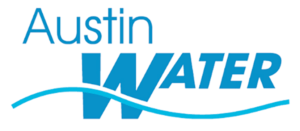By LYNETTE HAALAND, Four Points News
After six days, the water boil notice from the city of Austin was lifted on Sunday afternoon, much to the relief of many in Four Points as it affected homes, schools and businesses.
The notice was rescinded on Oct. 28 after the Texas Commission on Environmental Quality reported test results showed the city’s tap water met purity standards.
Last week on Oct. 22, all of those supplied by the city of Austin’s utility, Austin Water, were asked to boil water from the tap for three minutes before consuming. They were also asked to conserve water as the Austin Water treatment plants were hit hard by silt, mud and debris from flood waters.
“Historic flooding created water that showed over 100 times the level of silt and solids typically than found in our source water,” according to the city of Austin website. “This dramatically changed the way our treatment plants needed to operate to produce high quality water, and decreased the amount of water the plants were able to filter. This required us to slow our water treatment process.”
Communities including River Place, Grandview, The Preserve and Colina Vista were all affected and homeowners and shopkeepers were asked to boil water before consuming.
Possibly the worst affected by the mandate were local eateries and coffee shops in Trails at 620, Four Points Centre, 2222 Station and in River Place.
For days, Starbucks, Whataburger, Chicken Express, Freddie’s Frozen Custard & Steakburgers, Summer Moon Coffee Bar and others offered limited service. For example, late Wednesday, they were serving only drive-through customers and closed to in-store dinners. Starbucks closed at 6 p.m. that night.
H-E-B grocery store in Four Points was affected worst on the Monday, Oct. 22 when the notice was issued. All of the bottled water was wiped out quickly. Extra shipments came in and water was restocked.
It affected all fruits and vegetables that are normally misted to keep fresh, but that did not account for too much of the produce section. Additionally the sushi station had to drastically cut back on what it offered and the bakery slowed production to accommodate the notice. It also affected the bags of ice that were made in-store, according to H-E-B.
Schools including Vandegrift, Four Points Middle School, River Place Elementary, Grandview Hills Elementary, and School in the Hills River Place were also affected by the water notice.
On Sunday afternoon, Leander ISD shared an email with families stating: “Please be assured that LISD has procedures to transition to normal water usage at each of the affected campuses. This includes the continued use of bottled water until plant services can verify all school water systems are properly flushed and deemed safe for consumption. LISD has plenty of bottled water available.”
The city of Austin treatment plants could not keep up with Austin’s water demand as the city’s water supply was filled with silt, mud and debris from the recent flooding.
The city issued a precautionary boil water notice on Oct. 22 and then on Oct. 24, the notice was required by the Texas Commission on Environmental Quality after Austin Water did not meet the minimum treatment technique requirements on turbidity.
According to the city of Austin website, the Texas Commission on Environmental Quality sets minimum water quality standards for public drinking water. One of these standards is a turbidity limit. Turbidity by itself has no health effects. However, turbidity can interfere with disinfection and provide a medium for microbial growth. Turbidity may also indicate the presence of disease-causing organisms. These organisms include bacteria, viruses, and parasites that can cause symptoms such as nausea, cramps, diarrhea, and associated headaches. These symptoms can be particularly severe in people who are not as resistant to infections as most of the population.
This week, water restrictions continue to remain in place including outdoor irrigation, filling pools or spas, operating ornamental fountains, and washing homes and vehicles.
“Operations are not quite back to normal. While water production has recovered significantly, water treatment plants are not producing as much water as they can under typical conditions,” the city of Austin website states. “While we are working to restore the full capacity, keeping water use down will help ensure the system can meet customer demands”

